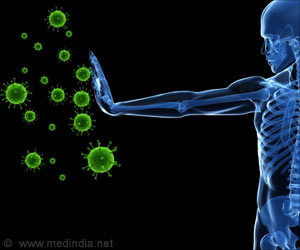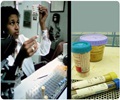Fecal transplants could be used to treat patients with Alzheimer's disease and cancer if deeper research is undertaken to understand fecal 'super donors'.
- Fecal transplants could be used to treat intestinal disorders like inflammatory bowel disease
- Fecal transplants could potentially treat Alzheimer’s and cancer too
- New research calls for focused fecal transplant trials
Fecal transplants have become a routine treatment for multiple intestinal disorders including recurrent diarrheal infections. However, using fecal transplants to treat other conditions has remained only in the experimental phase.
Read More..
Fecal Transplants and ‘Super-donors’
A research team that believes in the potential of fecal transplants has attempted to re-examine the evidence. On many occasions, they have spotted a single donor whose stool was considerably more likely to lead to clinical improvement than others in the same trial. Referred to as ‘super-donors,’ they will be able to provide bacteria to restore the gut chemicals that would have become nonexistent owing to illnesses like inflammatory bowel disease and diabetes.Alzheimer's, multiple sclerosis, cancers, asthma, allergies and heart disease are all related to changes in the gut bacteria. Hence, delving into what makes a fecal super donor would potentially help in finding the solution to all these diseases.
Dr. Justin O'Sullivan of the University of Auckland, who is also the senior author of the research has said: “The last two decades have seen a growing list of medical conditions associated with changes in the microbiome -- bacteria, viruses and fungi, especially in the gut.” He added, “In fact, we know already that changes to the gut microbiome can contribute to disease, based on studies in germ-free mice as well as clinical improvement in human patients following restoration of the gut microbiome by transplanting stool from a healthy donor.”
The overall cure rate for recurrent diarrheal infection using fecal transplant exceeds 90 percent. Whereas, in the trials for others illnesses like inflammatory bowel disease exacerbations and type-2 diabetes, it has been mixed, averaging a cure rate of 20 percent.
Dr. O'Sullivan explains, “The pattern of success in these trials demonstrates the existence of 'super-donors', whose stool is particularly likely to influence the host gut and to lead to clinical improvement.” On why it is important to understand super-donors, he mentioned: “We see transplants from super-donors achieve clinical remission rates of perhaps double the remaining average. Our hope is that if we can discover how this happens, then we can improve the success of fecal transplantation and even trial it for new microbiome-associated conditions like Alzheimer's multiple sclerosis and asthma.”
What Makes ‘Super-Donors’ Super?
Dr. O’Sullivan and his colleagues have reviewed many fecal transplantation trials to find evidence that will help understand the origin of super-donor phenomenon. He explains: “It is well-known that responders typically exhibit a higher microbial diversity than non-responders. In line with these observations, a larger number of species in the donor stool has been shown to be one of the most significant factors influencing fecal transplantation outcome.”High levels of specific ‘keystone species’ are commonly found in super-donor stools. These are the species of bacteria that produce chemicals whose absence may contribute to diseases in the host gut. Dr. O’Sullivan illustrates this point with the following example, “In inflammatory bowel disease and diabetes, for example, keystone species that are associated with prolonged clinical remission produce butyrate - a chemical with specialized functions in regulating the immune system and energy metabolism.”
There is a possibility of testing the keystone species theory – donor stool rich in particular strains could be selected or ‘precision’ transplants with a defined mixture of beneficial bacteria, like a probiotic could be designed.
“This approach has been applied successfully to prevent complications in a small sample of patients with liver disease. However, this study showed that microbial enrichment in the donor does not completely guarantee enrichment in the recipient,” explains Dr. O’Sullivan.
What makes a Fecal Transplant Successful?
The presence of the keystone species alone does not render a super donor. There are many other influencing factors like the balance of other bacteria present and the interactions between them which determine the retention of the keystone species.In-depth research has also revealed that is not only the bacteria type that matters but also what's present in and around the bacteria. The following statement explains this point – “For example, the success of fecal transplants has been associated in some studies with the transfer of viruses which infect other gut microbes. Some cases of recurrent diarrheal infection have even been cured with transplants of filtered stool, that has had all the live bacteria filtered out but still contains DNA, viruses and other debris. These viruses could affect the survival and metabolic function of transplanted bacteria and other microbes.”
The Way Forward
Dr. O’Sullivan and team recognize that super-donors may not solely account for success in fecal transplantation. They have been quoted saying that, “Some fecal transplant failures may be attributable to the gut's immune response to transplanted microbes, possibly stemming from an underlying genetic difference between the donor and the recipient.”They suggest that “Supporting the transplanted microbiome through diet could also improve success. It has been shown that a rapid change in diet, such as a switch from an animal-based to an exclusively plant-based diet, can alter the composition of the gut microbiota within 24 hours.”
In conclusion, the team recommends that the genetic background and dietary intake of recipients should be recorded in all future fecal transplant trials. This would immensely help in understanding better, their impact on transplant engraftment and clinical remission.
Reference:
- The Super-Donor Phenomenon in Fecal Microbiota Transplantation - (https://www.frontiersin.org/articles/10.3389/fcimb.2019.00002/full)
Source-Medindia














